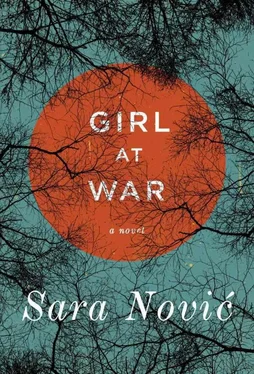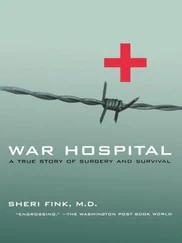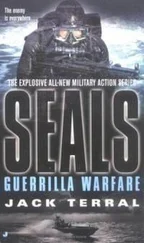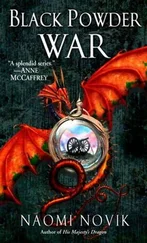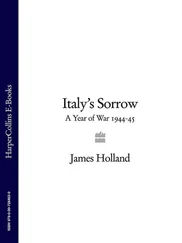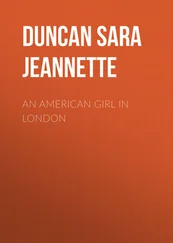“She’s sleeping,” my mother said. They’d moved the cradle into the threshold between the kitchen and their bedroom, and I peered in. Too much blood on the blankets, down the front of her shirt. Her breathing shallow.
“What’s going on?”
“The medicine’s not working. She has to go.”
“To the hospital?”
“There’s nothing they can do for her here. There’s a program transporting out of Sarajevo. We’re going to take her tomorrow.”
“Transporting where?” I said.
“To America.”
I looked around. There were no other cases, no adult clothes in the bag. “By herself ?”
“It’s a medical program. They’ll take good care of her,” said my father. “Once they fix her up she’ll come right back home.”
“I want to go to Sarajevo with you,” I said.
“No,” said my mother.
“We’ll see,” said my father.
The power was on for an hour or two, and my father made a series of calls, his hand cupped over the receiver to guide his voice through the shoddy connection. At first I assumed he was trying to reach MediMission, but I noticed him later scribbling out what looked like a map, which he folded and put in his back pocket.
After dinner, when an especially violent air raid rattled the windows of our flat, my mother sprang up and held me and I knew I could win her over.
“Did you finish your homework?” she asked when we returned from the basement.
“I don’t have to since I’m not going to school tomorrow,” I tried.
My mother sighed.
“I want to say goodbye to her, too.”
“Better go to bed then. We’re getting up early.”
On the couch I lay listening to my parents shuffle around the flat.
“She shouldn’t be going with us,” my mother said. “The road isn’t safe.”
“It’s not safe here either, Dijana. What if something were to happen while we were gone? It’s better we stay together.” I heard the paper crumpling and remembered my father’s drawing. “Besides. Look. I called Miro and he gave me the latest intel. We’ll have to take the long way, but it’ll be clear. We’ll be fine.”
I stared at the ceiling, imagining the ride through the mountains with Luka’s father’s map, then some MediMission stranger carrying Rahela in the airport, on a plane, in America. I knew little of America besides what I’d seen on television, mostly cowboy movies they played on state TV Saturday nights. The United States seemed to me a wonderland full of actors who subsisted on McDonald’s, and I wondered if Rahela would go to live with someone rich and famous. On the news men in suits were always calling on the States to help protect us, but no one had shown up yet. Maybe they were just too far away. I slept fitfully, the kind of sleep in which you never quite lose contact with the waking world, and after just a few hours I heard the clack of my mother’s shoes alongside my couch.
“Time to go,” she said. My arms and legs felt leaden and I struggled to dress, rummaging through my clothes in the morning dark.
“Ivan, molim te , don’t drive so fast. We don’t need to give them a reason to pull us over.” My mother pressed her free hand against my father’s knee. With the other arm she cradled Rahela, who was too weak even to cry. On the horizon, day had not yet broken. It was cold; the back window was stuck half-open, and my father gave me his jacket to use as a blanket. Whenever he turned too sharply, Rahela’s suitcase banged me in the shin and my mother implored him to slow down. At some point I fell asleep.
When I woke the sun was noon-strong through the streaky windshield and we had already crossed the border into Bosnia; the signposts were written in both Cyrillic and Latin alphabets and the road circled the bases of the Dinaric Alps in a serpentine coil. We called the road a highway, though it wasn’t really — not the kind with streetlamps — and in the spaces between more important destinations it was only two lanes.
Like the areas in Croatia far from Zagreb, Bosnia was mainly full of nothing: vast expanses of rocky soil, so that even the grass looked like it’d prefer to be rooted somewhere else. Clusters of cement-block houses appeared every so often but seemed to dissolve against the bleach-bright sky as we sped past. Finally, signs presented us with digestible distances to Sarajevo: 75, 50, 25 kilometers.
“Allaaaaaahu akbar,” the adhan began as we passed a peripheral mosque at the limits of the capital. We didn’t have mosques in Zagreb, at least not ones with public presences, and I cranked the window down the rest of the way to soak in the mysterious strains of the muezzin’s call. Rahela slept through it, and I craned my neck around the headrest to survey the rise and fall of her chest.
Sarajevo was on edge, the expectation and anxiety almost palpable. The war hadn’t yet come to Bosnia, and the haze of a city left to wait was familiar, though more like a remembered dream than an actual place I’d lived. We passed through the city center, the curvature of mosque domes and sharp angles of Yugoslav skyscrapers forming a rugged skyline. Still, Sarajevo and its inhabitants seemed similar to, if a bit cheerier than people in Zagreb. Markale market was not yet infamous; the parliament building stood boxy and firm, though it was the bloodshed here, not ours, that would catch the attention of the international community in the end. Gazing through the back window at children my age playing stickball in the street, I thought of our war games and generator bike fights and wondered if the things I’d come to consider ordinary were not so normal after all.
My mother traced her finger along a sheet of directions, and my father maneuvered through the alleys in accordance with her commands.
“That’s it!” she said suddenly, and my father pulled the car up on the curb to make room for passersby on the narrow street. I recognized the MediMission logo, red and gray and loud, affixed to a corner concrete building. Clutching Rahela, my mother ran across the street without even checking for traffic.
“Lock the car,” my father said, tossing me the keys and ducking through the undersize doorframe.
The waiting room gave off the impression of having once been a different kind of room hastily decorated to look like a doctor’s office. The carpet was stained; the plastic upholstery of the chairs was hard and cracked. It smelled of antiseptic and rotting fruit. Still, it was more official-looking than the living room — turned-clinic we’d been to in Slovenia, and there was comfort in this formality. But Rahela was shaking with fever now, and a nurse took her from my mother and into an exam room. Dr. Carson, with her insufferably white teeth and a matching lab coat, appeared from the back soon after and ushered us inside.
“Good to see you again,” she said. No one replied.
By the time we reached her room, Rahela was already strapped down to the infant-size examination table, one flex of plastic tubing in her nose and another in her foot. Her chest and mouth moved as if she were crying, but produced only the faintest trace of what appeared to be a full-blown wail. I tore a corner off the exam table paper and scrunched it into a ball.
“Okay let’s flip her,” the nurse said.
“What’s going on?” said my mother.
The nurse rolled Rahela onto her stomach, then refastened the straps restraining her arms and legs.
“We have to do a lumbar puncture to check for bacterial infection,” Dr. Carson said in sterile but much improved Croatian. She snapped on her latex gloves; a long needle gleamed on the tray beside her.
“Lumbar?” said my mother. “You’re going to put that in her spine?” She lunged toward Rahela, but my father caught her by the elbow and pressed her firmly against the wall, whispering things I couldn’t hear.
Читать дальше
